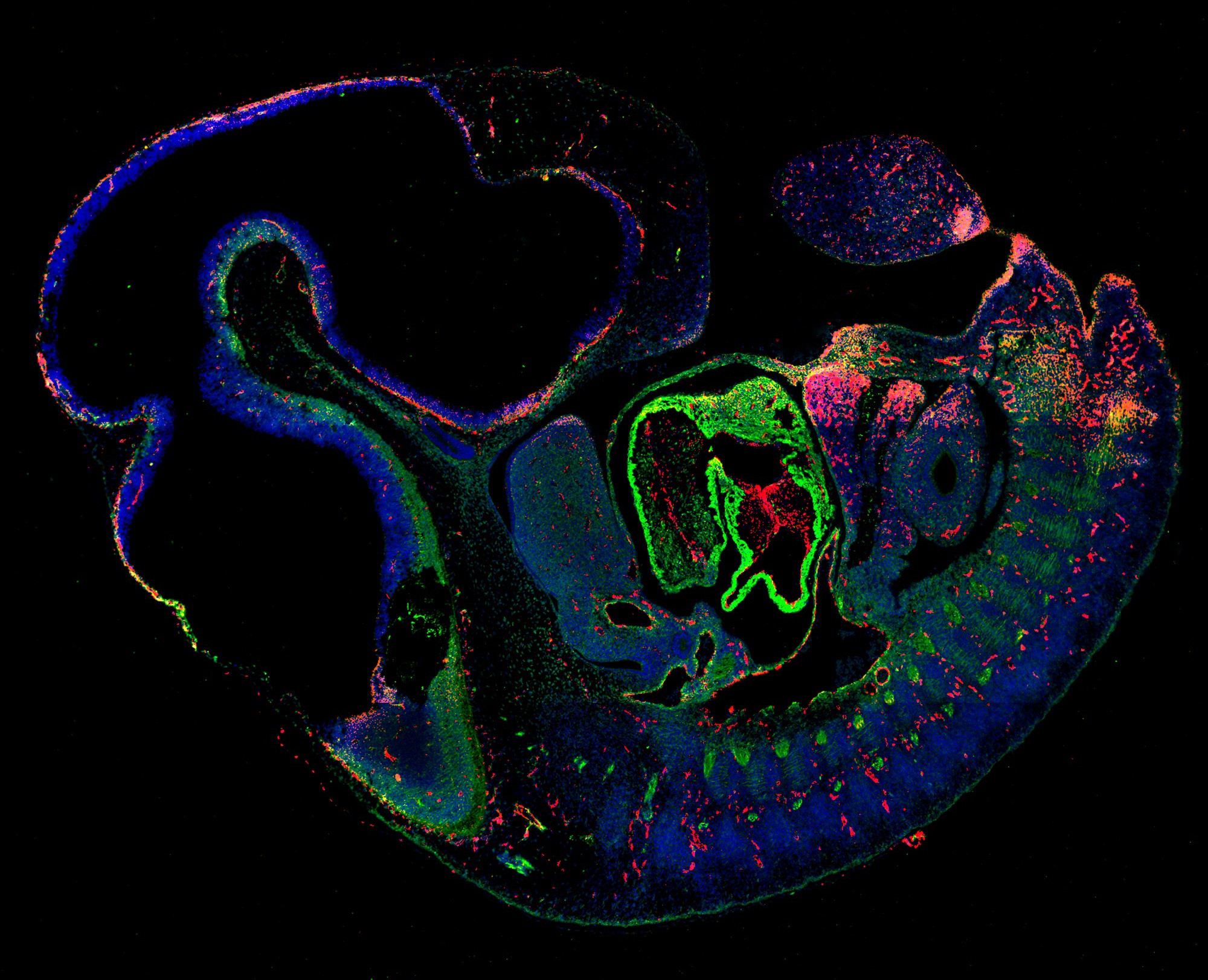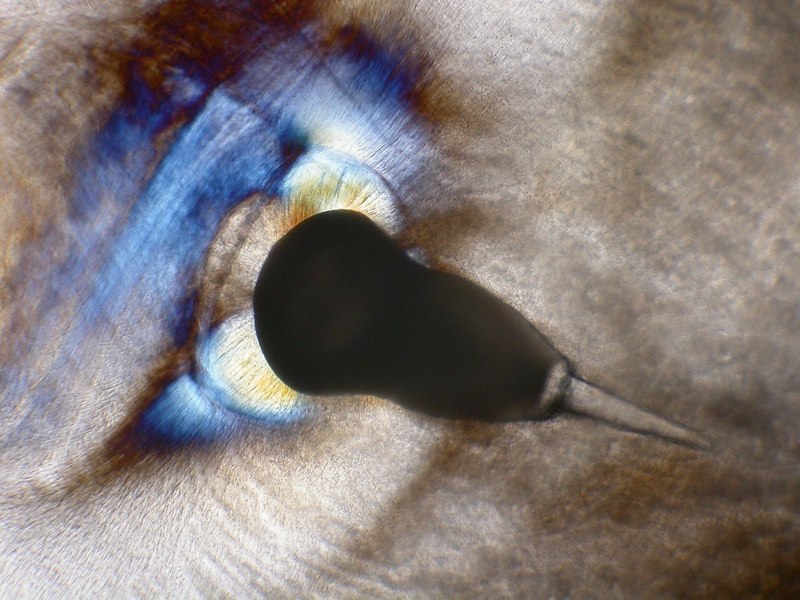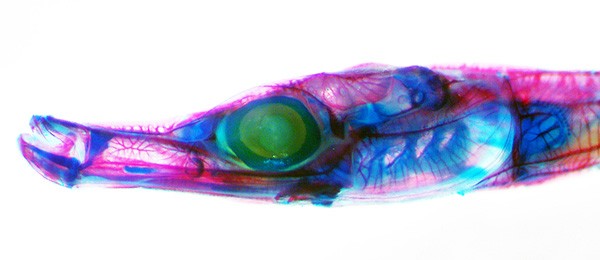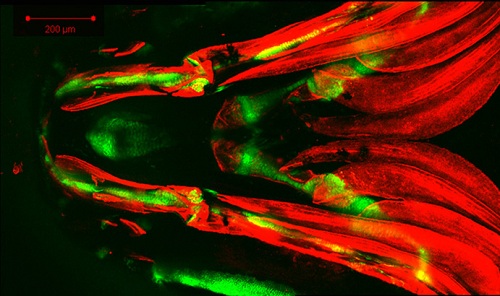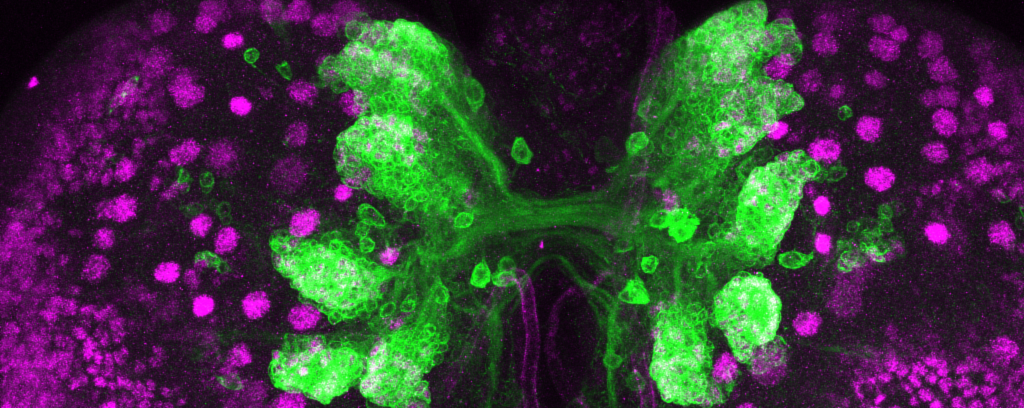Coursework
The required curriculum was revised in 2019 to reflect changing training needs and to ensure that all students graduate with a strong, common background in developmental biology. Students with previous coursework in particular areas, with a grade of B+ or better, can petition for one course release.
1) BI 620 Molecular Genetics. Fall of the first year. This course teaches students the logic of genetic studies for understanding inheritance, development, and disease, exposes students to modern reverse and forward genetic approaches, and trains students in preparing research proposals based on genetics principles and methods.
2) BI 528 Developmental Genetics. First or second year. This course covers general principles that allow a single cell to develop into a remarkably complex organism. The course explores how different cell types establish unique gene expression programs through cell-cell communication and an array of gene regulatory mechanisms. The class emphasizes the scientific research process of pursuing interesting questions, proposing specific hypotheses, designing well-controlled experiments, and rigorously interpreting results into conclusions.
3) One of the following three courses, as recommended by the trainee’s Dissertation Advisory Committee (DAC) and approved by the Executive Committee. The course selection is determined by a discussion between the trainee and his/her committee at the first DAC, with the goal of selecting the course(s) that would provide the most relevant material for the trainee’s thesis project. Generally, Winter or Spring of the second year.
• BI 510 Stem Cells: Disease and Regenerative Medicine. This course examines stem cells from developmental, cellular and molecular angles. Students explore origins, functions, and roles of stem cells in development and their applications for regenerative medicine. Students learn what happens how aberrant stem cells contribute to cancer and investigate scientific and ethical debates surrounding clinical use of stem cells. Primary literature presentations and expert guests are key parts of interactive class discussions.
• BI 566 Developmental Neurobiology. This course explores mechanisms underlying nervous system development and how these mechanisms fail in some neurodevelopmental disorders. The course is taught almost entirely from original research papers and reviews and emphasizes critical reading of the literature and critical thinking.
• BI 593 Genomic Approaches & Analysis. This course introduces students to methods for studying biological questions on a genome-wide level. Students examine approaches to measure changes in genomic DNA composition, transcript and protein levels, and molecular interactions as a function of history, genetics, or environment. Analytical methods for interpreting the large bodies of data generated by these methods of experimentation are discussed. These concepts are put into practice by a course project and presentation at the end of the term.
4) BI 610 Advanced Biological Statistics. Fall of the second year. This course aims to provide students with an understanding of the core concepts and approaches for the analysis of biological data, particularly large data sets. This foundational course for graduate students moves quickly, covering all major topics in univariate and multivariate data analysis and forming a foundation for subsequent learning. Students are assigned projects to analyze sequencing data sets using the R programming language.
or BI 610 Foundational Statistics. Spring of the first or second year. This course in an introduction to data management, data visualization, and statistical inference. It is intended for early-stage graduate students with no background in statistics. No prior coursework (undergraduate or graduate) in statistics or programming is assumed. The primary objective of the course is to get students up to speed with respect to organization, manipulation, visualization, and analysis of data, using the R statistical language.
5) BI 610 Ethics and Integrity in Biomedical Research. Fall of the second year. The course outline, schedule, background readings, preparatory exercises, a description of each class session, and other reference materials for each class session are at the course website, which is kept active as a reference source for trainees. The course draws on several online sources: primarily, materials from NIH Training in RCR, the DHHS Office of Research Integrity, and the National Academy of Science, and several RCR classes at colleagues’ institutions. It includes instruction on all of the Core Instructional Areas recommended by PHS Office of Research Integrity and by the NIH RCR instruction requirements listed in NOT-OD-10-019.
6) Computational Training. We strongly encourage trainees to train in biological computation by taking one of three courses. BI 510 Intro to Programming for Biologists is a hands-on introduction to Python skills required to work with large data sets. BIC 610 Computational Bioinformatics provides project-based instruction in the use of Python to analyze biochemical and genetic data. BI 510 Matlab for Biologists provides an introduction to programming using the Matlab environment.
Cell and Developmental Biology Journal Club
The Developmental Biology training program oversees the Cell and Developmental Biology journal club (CDBJC), which is held every week during Fall, Winter and Spring quarters. DBP trainees are required to register and participate. Students, post docs, and faculty share in these lively presentations and discussions. Each week, one person (trainee or faculty) leads an interactive seminar and another person (trainee or faculty) is responsible for commenting on and critiquing the presentation after the session. Presenters select papers for discussion at least a week in advance that are posted in PDF format on a website providing password-protected downloads. All trainees must present at least once per year. This weekly meeting, currently drawing about 40 participants, provides important interactions among trainees to enrich their exposure to a broad range of developmental biology-related research.
Developmental Biology Interest Group
The program hosts a monthly lunch series where two UO speakers (grad students, postdocs, technicians, or faculty) present their research progress. The talks engage a diverse group of DB-interested scientists in critical and creative discussion, including troubleshooting and brainstorming future directions.
Career Development Opportunities
Trainees are required to participate in an Individual Development Plan (IDP) process. The purpose of the IDP is to encourage introspection concerning career goals, and concrete action to tailor training to those goals. The IDP procedures are outlined in the IDP Year 2 and IDP Years 3-5 documents.
We encourage students who are considering careers outside of academia to consider doing an internship toward the end of their Ph.D. training. Internship information and opportunities can be found here.
Additionally, the UO Graduate School annually hosts several career development panels of 2-3 professionals in one field. Students have the opportunity to interact with panelists in a casual environment. Planned panel topics include science policy, patent law, biotech start-ups, and nonprofits.
The Developmental Biology Symposia
A Developmental Biology symposium on a topic chosen by the DBP trainees is held each June. The symposium is a one or two-day affair located on campus. The students pick the topic, invite the speakers (usually five) and other participants, and host the event. Recent meeting topics include: “Cell Type & Identity” (2019), “Eye of the Beholder: Live Imaging Fueling Scientific Discovery” (2018), “Lab Grown Human Organs” (2017), “Exploring Development using Non-Traditional Model Organisms” (2016), and “Organogenesis: From Micro to Macro… and Back Again” (2013).
Oregon Program IN Developmental Biology – OHSU/UO Joint RetreatS
The inaugural retreat of the Oregon Program in Developmental Biology was hosted at Oregon Health & Science University on January 5-6, 2017. A reciprocal retreat at the University of Oregon was held on June 25-26, 2017 in conjunction with the annual symposium. These retreats familarize attendees with DB-related research conducted at UO and OHSU and enable the exploration of collaborative opportunities. Further, the 2017 retreats mark the launch of joint training and research funding opportunities between the two institutions.
